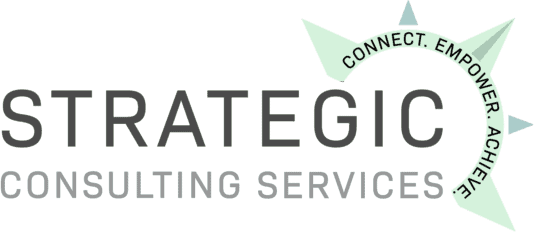January represents a month for fresh starts and personal revolutions, often a pivotal time for those transitioning into recovery from substance use. This period underscores workplaces’ need to evolve into supportive platforms for recovery and growth. Today, we will take a look at how to transform conventional workplace environments into nurturing spaces — or “recovery-ready workplaces” — that support the courage of individuals walking the path of recovery.
What is a Recovery-Ready Workplace?
A “recovery-ready” workplace proactively embraces policies and attitudes that support employees navigating substance recovery. These businesses foster an environment where recovery from substance use is respected and facilitated, not stigmatized. This approach is particularly important in the month of January, recognized for new resolutions and often a period when many people set out on recovery journeys. By adapting workplace practices, companies contribute to individual healing and initiate a culture of empathy and understanding, which is essential for holistic employee well-being. The timeliness of these efforts aligns perfectly with the spirit of renewal that signifies the start of the year.
The Importance of a Recovery-Supportive Environment
Creating a recovery-supportive environment benefits employers and employees, establishing a workplace foundation of trust and mutual respect. For employers, investing in a recovery-ready atmosphere translates into real benefits. Statistics indicate that supportive environments lead to up to a 60% reduction in absenteeism and a 25% drop in turnover, significantly enhancing productivity levels.
Moreover, employees in recovery bring unique strengths, showing resilience and dedication, often reflected in their work quality. They’re also more likely to remain loyal to empathetic employers, reducing recruitment costs. Additionally, a positive, inclusive environment promotes overall employee well-being, leading to a more engaged, satisfied, and productive workforce. This symbiotic relationship underscores the value of nurturing a recovery-ready workplace.
What Does a Recovery-Ready Workplace Look Like?
Establishing a recovery-ready workplace requires concrete steps in policy implementation, practice, and cultural reform. Below are essential components to consider:
- Comprehensive Support Programs: Ensure easy access to treatment and recovery services, including counseling and support groups. Offering flexible schedules for continued care is also vital.
- Educational Initiatives: Conduct regular training and workshops to educate employees about substance use disorders. Understanding the challenges of recovery can foster empathy and solidarity.
- Anti-Stigma Campaigns: Launch internal campaigns to combat the stigma surrounding recovery. This might include sharing success stories of those in recovery and presenting factual information to dispel myths.
- Open Communication Channels: Encourage dialogue that allows employees to speak freely about their challenges with substance use without fear of judgment or retribution.
- Clear, Compassionate Policies: Develop and communicate policies that support employees’ recovery efforts. This includes outlining the protocol for seeking help and assuring job security during treatment.
- Community Engagement: Build partnerships with local recovery organizations and healthcare providers. This collaboration enhances the support network available to employees.
By adopting these key components, businesses affirm their commitment to nurturing a supportive, inclusive environment conducive to recovery and overall employee well-being.
Steps to Create a Recovery-Ready Workplace
Employers must take practical, actionable steps to build a recovery-ready workplace. Here’s how to begin:
- Collaborate with Experts: Partner with local recovery groups and healthcare providers. They can offer valuable resources and support for your employees.
- Train Your Team: Educate HR staff and managers on handling sensitive substance use and recovery issues. Training helps in responding with empathy and understanding.
- Offer Flexibility: Provide flexible work schedules or remote work options. These accommodations support employees committed to recovery programs and medical appointments.
- Explore Incentives: Investigate government incentives like tax credits. Businesses often receive benefits for supporting recovery initiatives and employing individuals in recovery.
Implementing these measures demonstrates a company’s commitment to its employees’ well-being and contributes to a positive work environment for everyone.
Building a Strong Foundation for Recovery
Recovery-ready environments are not just beneficial but necessary for individuals rebuilding their lives. Often a turning point for many on this journey, January is the ideal time for businesses to embrace this transformative change. Employers are encouraged to take definitive steps, creating a supportive workplace that acknowledges the challenges and champions the bravery of those in recovery. This initiative is more than a program; it’s a testament to a company’s heart and commitment to its employees’ holistic well-being.
Strategic Consulting is Your Partner in Managing Workplace ADA Issues
Our team is here to help with your disabilities accommodation issues, vocational rehabilitation needs, ergonomic evaluations, and other employee needs.
For twenty years, we have been helping companies in the Pacific Northwest with worker injuries, disabilities, and other vocational challenges. We are here to support you in this unprecedented era of teleworking and WFH.
We have partnered and provided solutions to some of the largest companies in the world (such as Boeing, Microsoft, and Amazon). But, at our core, we are still “people taking care of people,” one project at a time. Our success is built upon and providing you the best solution to your workplace challenge. Contact us today by filling out a form (below), submitting a referral, or visiting our ‘Contact Us‘ page to find your nearest office.

Ric has been working in the industry since 2002, specializing in developing employer jobsite analysis and light duty programs, ergonomics consultations and adjustments, disability accommodations and providing effective return to work solutions. Ric is Matheson trained in Ergonomics and is a Certified Ergonomics Evaluation Specialist. He earned a Bachelor of Arts Degree in Psychology from Western Washington University and later his Master’s Degree, M.Ed., Education Counseling from Seattle Pacific University. Ric is currently a Registered Vocational Rehabilitation Counselor for the Department of Labor and Industries and has been a Certified Disability Manager Specialist since 2006.

